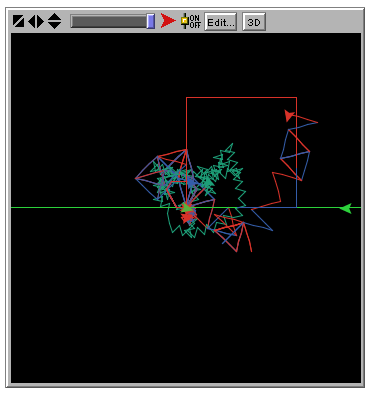Summary:
I didn't make quite as much progress as I had hoped, since a problem
came up. Here are the goals that I was hoping to accomplish this
week:
- expand the function and terminal sets considerably
- deal with building and executing of commands and command
blocks
(will need to be special-cased somehow)
- deal with command structures such as "ifelse", and
"ifelse-value"
(and running boolean expressions)
- start work on performing the genetic cross-over operation
between
two trees.
I decided that (1) wasn't really a priority, and that the makeup of
these genetic programs would vary considerably depending on the
application they were designed for. So I'm putting it off until
the structure for my maze solver is clearer. I did (2) and (3) --
(3) is where I ran into the problem, which will be explained in the
details section. And sadly, I didn't get to (4) (with luck, I may
have time this afternoon to start on it...). On the positive
side, I overhauled the random tree generation code, so that it is much
cleaner, and so that each each syntax element is chosen with a weighted
probability.
|

(Random
codeturtles are on the loose!)
|
